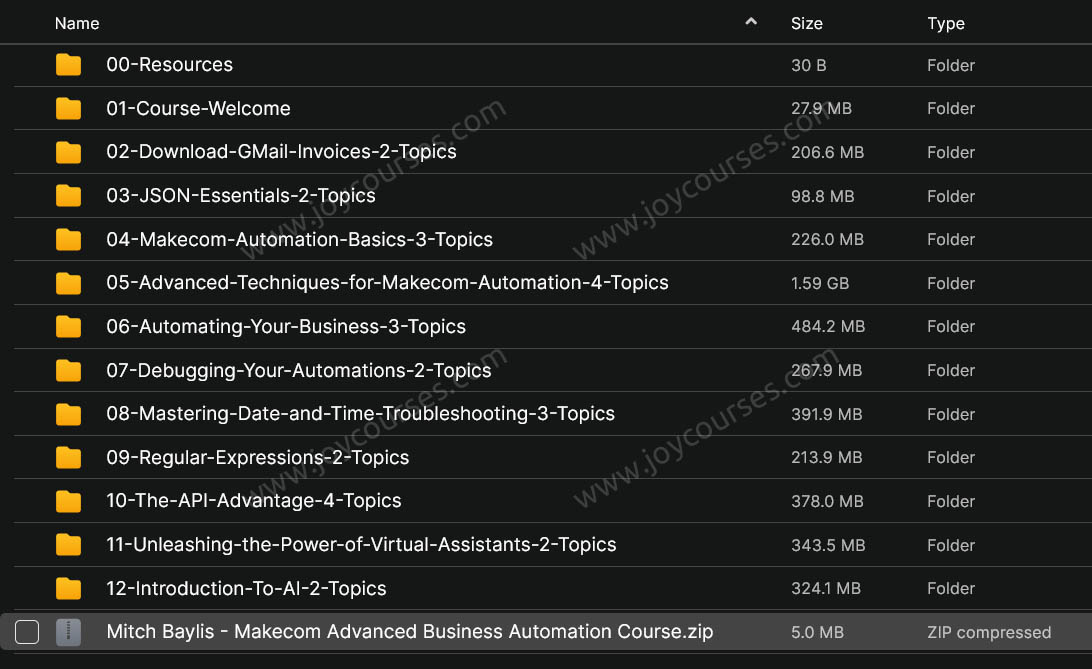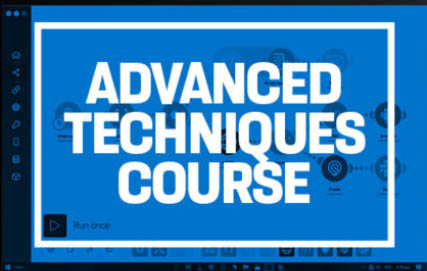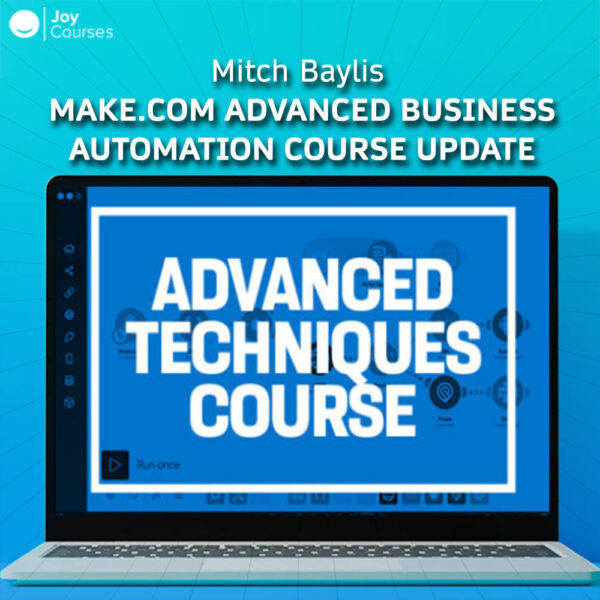Mitch Baylis is a well-known entrepreneur, digital marketing expert, and automation specialist. He is the founder of Make.com (formerly Integromat), a powerful platform for automating workflows and business processes. Mitch has created a series of courses and training materials to help business owners, entrepreneurs, and marketers harness the full potential of Make.com for automating their business tasks. One of the key updates to his offerings is the “Make.com Advanced Business Automation Course”, which focuses on teaching advanced techniques for leveraging the power of Make.com in a business context.
Overview of Mitch Baylis’ “Make.com Advanced Business Automation Course”
The “Make.com Advanced Business Automation Course” is designed for users who already have some familiarity with Make.com (formerly Integromat) and want to take their automation skills to the next level. The course dives deep into advanced features of the platform and shows how to create complex, scalable automation systems for businesses.
Make.com is a no-code automation platform that allows businesses to automate workflows by connecting various apps and services. With Make.com, users can automate tasks, transfer data between applications, trigger actions based on specific conditions, and ultimately streamline business operations.
The Advanced Business Automation Course by Mitch Baylis covers how to use Make.com to automate key aspects of a business, such as lead generation, customer support, marketing campaigns, and sales workflows. The course includes in-depth tutorials, real-world examples, and best practices for building sophisticated automation systems that save time, reduce human error, and improve efficiency.
Key Features of the Make.com Advanced Business Automation Course
- Understanding Advanced Features of Make.com:
- Custom Variables and Functions: Mitch’s course delves into advanced concepts such as creating and using custom variables, which allow you to store data for use later in a workflow. Additionally, the course covers how to leverage functions (e.g., text manipulation, math functions) to make workflows more flexible and powerful.
- Advanced Data Operations: The course covers the more complex aspects of data operations within Make.com, including filtering, sorting, transforming, and aggregating data from multiple sources. This allows businesses to automate intricate workflows that involve handling large datasets.
- API Integration: One of the advanced features taught in the course is how to integrate external APIs into your workflows. Make.com provides robust API integration tools, and Mitch’s course teaches how to set up these integrations to connect third-party apps and services that may not have a native connection to the platform.
- Building Multi-Step Workflows: Mitch Baylis explains how to create multi-step workflows that involve multiple triggers and actions. These workflows can automate a series of processes, such as collecting leads, sending follow-up emails, tagging customers in your CRM, updating inventory, and more. By using multi-step workflows, businesses can create seamless, automated systems that handle multiple tasks at once.
- Advanced Error Handling: In the advanced course, Mitch goes into how to handle errors effectively. While automation can significantly reduce manual work, errors can still occur due to issues with data sources, app connections, or conditions. The course teaches how to set up error handling mechanisms, such as retries, error notifications, or logging, so that users can troubleshoot and ensure smooth operations.
- Conditional Logic and Filters: Conditional logic (e.g., “if this, then that”) is an essential component of automating business processes. The course explains how to set up conditional paths and filters within workflows to ensure actions only occur when specific conditions are met. This allows for creating highly customized workflows that adapt to various scenarios.
- Scheduled and Time-Based Automations: Mitch Baylis teaches how to set up scheduled automations, which are triggered at specific times or intervals (e.g., daily, weekly, or monthly). Time-based automations are particularly useful for automating repetitive tasks such as reporting, reminders, or follow-up emails.
- Integrating Make.com with CRM, Email Marketing, and Other Business Tools: The course goes deep into how to integrate Make.com with popular business tools, such as CRMs (e.g., HubSpot, Salesforce), email marketing platforms (e.g., Mailchimp, ActiveCampaign), and e-commerce platforms (e.g., Shopify, WooCommerce). By doing so, businesses can automate a variety of customer-facing tasks like sending follow-up emails, segmenting leads, and processing orders.
- Building Automated Sales Funnels: One of the key practical applications of Make.com automation is in building sales funnels. Mitch’s course covers how to create automated sales pipelines by connecting different stages of the customer journey, such as lead capture, nurturing, follow-up, and closing the sale. The course provides step-by-step guidance on how to build and automate these funnels for both B2B and B2C businesses.
- Using Webhooks for Real-Time Automation: Webhooks are a critical feature for real-time automation. Mitch teaches how to use webhooks to instantly capture and trigger actions based on external events, such as a new form submission or an order placed on your website. This makes automations more responsive and timely.
- Scalability and Optimization: While building automations is powerful, it’s essential that they scale effectively as a business grows. Mitch teaches best practices for optimizing and scaling automation systems to handle higher volumes of data, more complex workflows, and growing business demands.
- Case Studies and Real-World Applications: The course includes practical case studies that showcase how businesses of different sizes and industries have successfully used Make.com to automate their workflows. These case studies provide valuable insights and inspiration for how to implement automation in your own business.
- Ongoing Updates and Community Support: Mitch Baylis provides continuous updates to the course to ensure that it stays current with the latest features and updates to the Make.com platform. The course also includes access to a private community where students can ask questions, share ideas, and collaborate with others who are learning automation.
Benefits of the Make.com Advanced Business Automation Course:
- Time Savings: Automating repetitive tasks allows businesses to free up valuable time, allowing employees to focus on higher-level work that drives growth.
- Improved Efficiency: Automations reduce human error and improve the efficiency of processes, making business operations run more smoothly and effectively.
- Scalability: As businesses grow, their workflows become more complex. The course teaches how to scale automation to handle increased demand, reducing bottlenecks and maintaining smooth operations.
- Cost-Effectiveness: Automating business processes helps reduce labor costs and the need for manual intervention, improving the overall profitability of the business.
- Enhanced Customer Experience: By automating tasks like follow-ups, order processing, and customer support, businesses can provide a faster and more consistent experience to customers.
Conclusion
Mitch Baylis’ Make.com Advanced Business Automation Course is a comprehensive resource for businesses looking to automate their operations using the power of Make.com. The course is designed for users with a basic understanding of automation who want to take their skills to the next level. By mastering the advanced features and strategies covered in this course, businesses can significantly improve their workflow efficiency, scale their operations, and provide better customer experiences.
![]()















